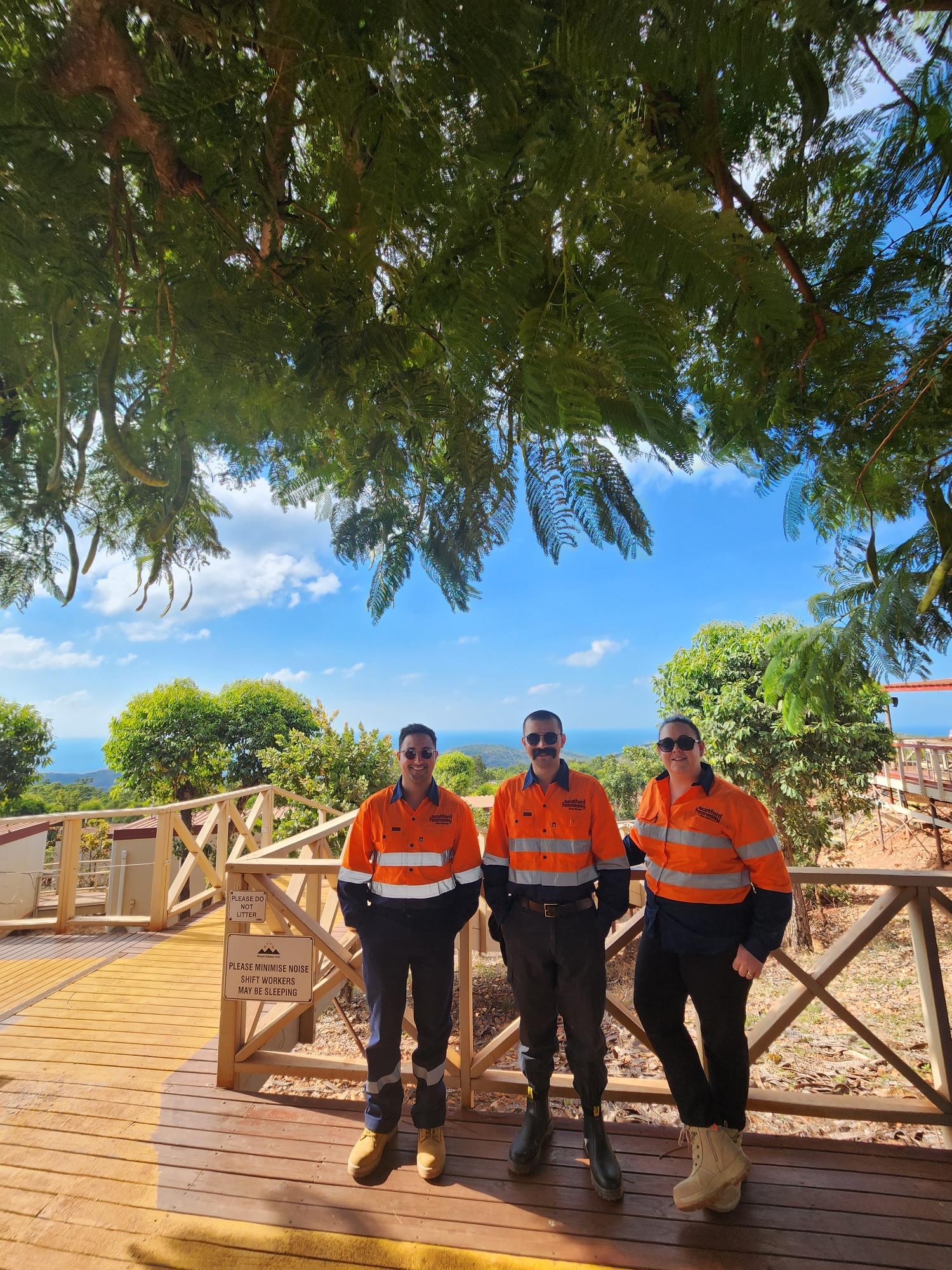Expert Advice on Skill Development and Career Pathways

Whether you are looking to take your current career to the next level or are interested in finding new job opportunities in the Perth or WA marketplace, developing your skills, and engaging in continuous learning is critical.
How can you employ strategies to facilitate your own skills development and what role does a recruitment agency like Scotford Fennessy play in your career progression? In this article, we’re going to explore just that.

How to develop your skills and engage in continuous learning
As you’re building your career strategy, it is important to understand that continuous learning is not just one thing. Depending on your career aspirations and your industry there are different facets to skill development and continuous learning to consider.
Finding the right course for you
Some careers, such as engineers and accountants, cannot be pursued without the applicable certifications and degrees. However, there are a wide range of short courses that are designed to help build the necessary skills to further career opportunities. In fact, the Western Australian State government continues to fund select full qualifications offering free study across 130 different training courses to encourage engagement in these courses.
It’s important to consider which area you are looking to grow in. For example, you might be looking for the right courses to get into the mining industry or you may be interested in becoming a professional bookkeeper. Finding the right course for your long term goals is the first step towards building your career.
Exploring workshops and certifications
If you already have the necessary qualifications for your career or are looking for ways to expand and enhance your professional skill set, workshops and certifications are a great option.
Being competitive in the job market means differentiating yourself from other candidates, and the right certifications and workshops under your belt demonstrate your dedication and diligence.
To get started finding the right course for you, have a look at the following training providers:
You can also find out more about different certificates available through training.com.au, the Training Services Australia website or the Industry Skills Training educational site.
Prioritising on-the-job training
Continuous learning and skill development doesn’t just occur in the classroom. It happens onsite as well. Many employers provide on-the-job training (paid and unpaid) offering ambitious employees the opportunity to upskill and broaden their capabilities. This can be especially important if you’re looking to transition your career to a new industry and need mentorship or guidance transferring your skillset.
There are more formal on-the-job training opportunities as well in the form of apprenticeships. Many industries require or offer apprenticeships and traineeships to ensure that your skills development is on track for a successful career.
For more information on apprenticeships, find out more here, or contact:
- The Department of Training and Workforce Development’s apprenticeship office
- Apprenticeship Support services
- gov.au
Obtaining the necessary licenses
It’s not just plumbers and electricians that require certification and licenses. From White Cards for construction work to Heavy Rigid licenses for driving trucks on mine sites, strategising your skills development by including the right licenses for your career is essential.
It can be a bit confusing as to which licenses you need for your chosen industry and career. Take the time to explore the following links or use this handy online license finder:
We also recommend speaking with your instructors from the training or course provider about how best to go about obtaining the right licenses you need, as they may be included in the curriculum of the course.
Be proactive with your networking
Networking with people in your chosen industry can be a great way to find out about job opportunities, training courses and industry insights.
Spending the time attending industry events, engaging with online forums, or directly contacting professionals in your chosen field will help you gain relevant and direct advice about how best to strategise your skills development and set you up for as successful a career as possible.
Be open to entry-level positions
There are many opportunities across a range of fields that require little or no experience. Depending on the stage of your career and your past professional experience, an entry-level position could provide you with the ‘in’ you need to the industry you’re after.
Apart from the low barrier to entry inherent in these positions, there is often an element of in-built on-the-job training which will assist you in your continuous learning and skills development.
Be willing to adapting to industry change
The Perth market is dynamic. Part of your continuous learning is staying up to date and abreast of the relevant industry changes to understand how you can best set yourself apart from competitors. Understanding both the challenges and opportunities of the industry, especially post pandemic and amidst the significant digital transformation, can position you to take advantage of the ever-widening skills gap for your own career development.
In addition to hard upskilling, understanding the shifts in the industry and the expectations of employers will assist you in optimising your skills development strategy to ensure you have the relevant capabilities for the job you’re after.
Skill development case studies
Familiarising yourself with your chosen industry to ensure you’re on the right skills and development trajectory is critical. To help you, we’ve outlined how you can go about kicking off your career in three different industries to serve as an example.
1. Mining
It’s important to note that the mining industry offers a wide range of roles, from labor-based positions to specialised technical and managerial roles. Decide on the type of role you’re interested in pursuing based on your skills, interests, and career goals. At Scotford Fennessy, we see consistent demand for roles such as all-round operators, dump truck operators, drillers, and engineers.
Step 1: Obtain a relevant bachelor’s degree
Pursue a bachelor’s degree in a field relevant to the mining industry, such as Mining Engineering, Geology, or Environmental Science, from a recognised university. Examples of relevant programs in Perth include:
- Bachelor of Engineering (Mining Engineering) at Curtin University
- Bachelor of Science (Environmental Science) at Murdoch University
Step 2: Obtain a vocational qualification
Complete a vocational qualification in a specific area of mining, such as surface mining, operations management, or underground mining. These qualifications are available through institutions like TAFE (Technical and Further Education) and other registered training organisations. Examples include:
- Certificate III in Surface Extraction Operations
- Certificate III in Underground Metalliferous Mining
Step 3: Pursue employee-based apprenticeship or traineeship
Enrol in an employee-based apprenticeship or traineeship program to gain hands-on experience while earning a nationally recognised qualification. These programs offer practical training in various aspects of mining operations and are often sponsored by mining companies. Examples include:
- Underground Mine Worker Traineeship
- Surface Mine Operator Apprenticeship
Step 4: Consider advanced certification and diploma courses
For career advancement and leadership positions, consider pursuing ongoing certification and diploma courses. These courses provide specialised knowledge and skills necessary for roles in mine management and leadership. Examples include:
2. Bookkeeping
Step 1: Education and training
Complete a vocational education and training course relevant to bookkeeping, such as:
Step 2: Gain experience
Attain the requisite number of hours of experience by completing an internship or gain relevant work experience in an entry-level role.
Step 3: Professional Certification
Consider becoming a registered BAS Agent through the Tax Practitioners Board. This certification may require meeting certain experience and education requirements, as well as obtaining Professional Indemnity Insurance.
3. Geology
Step 1: Pursue a bachelor’s degree
Relevant courses in Perth include:
- Bachelor of Science (Geology) at the University of Western Australia
- Bachelor of Science (Earth and Environmental Sciences) at Curtin University
- Bachelor of Applied Geology at Curtin University
Step 2: Gain practical experience
Participate in internships, fieldwork, or research opportunities to gain practical experience in geological fieldwork and laboratory analysis. Many universities offer fieldwork as part of their degree programs.
Step 3: Consider specialisation
Decide on a specialisation within geology, such as environmental geology, petroleum geology, or mining geology. Tailor your coursework and experiences accordingly.
Step 4: Obtain Postgraduate qualifications (optional)
Consider pursuing a master’s or Ph.D. in Geology or a related field for advanced research opportunities or specialised career paths. Perth offers postgraduate programs like:
- Master of Science (Geology) at the University of Western Australia
- Master of Science (Petroleum Geoscience) at Curtin University
Scotford Fennessy is committed to your growth
Reaching out to a recruitment agency like Scotford Fennessy offers a lot more than just a network of job opportunities. Our commitment to our candidates’ growth means we regularly invest the time and effort required to ensure that our jobseekers have a tailored learning and development strategy to foster their professional development. By drawing on our industry connections and partnerships, we can help determine the specific programs and courses that will help you put your best foot forward and develop the career you’re after.
If you’d like to find out more about how we foster our candidates’ growth journeys, need some custom advice on how to engage in continuous learning relevant for your industry, or just want to have a chat to find out more, contact our team today.

The Right People Make Life Easier
We’ll make sure your business gets the right person. The first time. We want you to invest in someone who is a good fit for your company culture. Someone with aptitude who can capitalise on opportunities and realise your business goals.
You know how important it is to get recruitment right, but it’s not an easy process without someone to guide you through it. That’s what we’re here for. We’ll find the person you need for tomorrow so you can focus on what your business needs today.